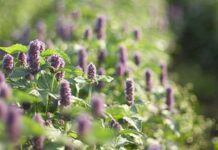Organismal ecology research how organisms work together with one another and their setting. It examines how they work together with the bodily, chemical, and organic elements of their setting and the way they work together with different organisms. This discipline of ecology seeks to know the causes and penalties of those interactions to foretell organismal habits. By understanding how an organism interacts with its setting, we will acquire perception into the bigger ecosystem through which it exists. On this weblog put up, we’ll talk about organismal ecology, its significance in conservation efforts, and a few examples of analysis research performed on this discipline.
What’s ecology?
Organismal ecology is the research of how an organism interacts with its setting. This consists of the evaluation of how an organism obtains meals and shelter, the way it reproduces, and the way it responds to modifications in its setting.
Nature is the investigation of how residing beings interface with their present circumstance. The time period can be utilized to check with the research of ecosystems, that are communities of organisms and their bodily setting. Ecology may also be used to check with the research of particular person organisms.
Organismal ecology is the research of how an organism interacts with its setting. This consists of the research of how an organism obtains meals and shelter, the way it reproduces, and the way it responds to modifications in its setting.
Ecologists who research organismal ecology are taken with understanding why some organisms are extra profitable than others at surviving and reproducing. Additionally they wish to understand how modifications in an organism’s setting can have an effect on its skill to outlive and reproduce.
Organismal ecologists use quite a lot of strategies to check organisms, together with discipline observations, laboratory experiments, and mathematical fashions. By understanding the ecology of particular person organisms, we will acquire insights into the functioning of total ecosystems.
What are the various kinds of ecology?
Organismal ecology is the research of how organisms work together with their setting. This interplay might be in competitors, predation, or mutualism. Organismal ecologists additionally research how these interactions have an effect on the health of the organism. There are three essential kinds of organismal ecology: intraspecific, interspecific, and group.
Intraspecific ecology is the research of how members of the identical species work together. This interplay might be in competitors, predation, or mutualism. Intraspecific ecologists additionally research how these interactions have an effect on the health of particular person organisms.
Interspecific ecology is the research of how members of various species work together with one another. This interplay might be in competitors, predation, or mutualism. Interspecific ecologists additionally research how these interactions have an effect on the health of particular person organisms.
Group ecology research how completely different species work together with one another and their setting. Group ecologists additionally find out how these interactions have an effect on the health of the person organisms and the group as an entire.
What’s organismal ecology?
Organismal ecology is the research of how organisms work together with their setting. This consists of how they acquire meals and water, reproduce, and reply to modifications of their setting. Organismal ecologists additionally research how completely different species work together and the way these interactions have an effect on the distribution and abundance of species.
What are the completely different features of organismal ecology?
Organismal ecology is the research of how organisms work together with their setting. This consists of how they acquire power and sources, address environmental stressors, and work together with different organisms.
A essential facet of organismal ecology is useful resource acquisition. Organisms must acquire power and sources from their setting to outlive and reproduce. They do that by way of numerous means, reminiscent of feeding, photosynthesis, and scavenging. One other essential facet of organismal ecology is stress tolerance. Organisms should have the ability to tolerate environmental stressors, reminiscent of excessive temperatures, drought, and predation. They do that by way of numerous means, reminiscent of behavioral variations, physiological variations, and evolutionary modifications. Lastly, one other essential facet of organismal ecology is interactions with different organisms. Organisms typically work together with different microorganisms in competitors for sources or in predator-prey relationships. These interactions can have a big affect on the health of a person organism.
How does organismal ecology affect the setting?
Organismal ecology is the research of how organisms work together with their setting. This discipline of research may help us perceive how completely different species work together with one another and their bodily environment. Moreover, organismal ecology may give us perception into how ecological modifications affect particular person organisms and populations. For instance, if a brand new predator is launched into an ecosystem, we will use rules of organismal ecology to foretell how the prey inhabitants might be affected. By finding out organismal ecology, we will higher perceive how people affect the setting and what we will do to attenuate our affect.
What’s an instance of organismal ecology?
Organismal ecology is the research of how an organism interacts with its setting. This could embody what an organism eats, the place it lives, and the way it reproduces. Organismal ecology is a subfield that focuses on the person stage moderately than the inhabitants or group stage.
Organismal ecology is the research of how an organism features in its setting. It consists of how the organism obtains and makes use of sources, responds to environmental modifications, and interacts with different organisms.
One instance of organismal ecology is the research of how animals use sources. Animals want meals, water, and shelter to outlive. Additionally they want area to maneuver and discover mates. Scientists who research animal useful resource use take a look at how animals see and use these sources and the way this impacts their populations.
One other instance of organismal ecology is the research of how vegetation reply to their setting. Crops want daylight, water, and vitamins to develop. Additionally they want to have the ability to defend themselves towards herbivores and ailments. Scientists who research plant ecology take a look at how plant species have advanced completely different methods for surviving of their environments.
You Can Additionally See alegrianatural.co
Why is organismal ecology necessary?
Organismal ecology is the research of how an organism interacts with its setting. This consists of finding out how an organism acquires sources, makes use of them, and the way its setting impacts its progress and copy.
Organismal ecology is important as a result of it could actually assist us perceive how an organism will reply to environmental modifications. For instance, if a selected species is declining in numbers, understanding the ecology of that species may help us establish what environmental components could also be inflicting the decline. Moreover, data of organismal ecology may help us predict how a species would possibly reply to future environmental modifications, reminiscent of local weather change or habitat loss. In the end, this data may help conservation efforts by offering perception into which administration methods are prone to be simplest for a selected species.
Organismal ecology is important as a result of it helps ecologists perceive how organisms work together with their setting. This data may help preserve ecosystems and the species that reside inside them. Moreover, organismal ecology may help us predict how environmental modifications will have an effect on populations of organisms.
Conclusion
Organismal ecology is a essential discipline of research for understanding the relationships between completely different species and their setting. By finding out how organisms work together with one another, in addition to how they react to environmental modifications, biologists can acquire a greater understanding of how ecosystems perform. By means of organismal ecology, scientists can uncover new methods to guard our planet’s biodiversity and make sure the well being and sustainability of our pure sources.












